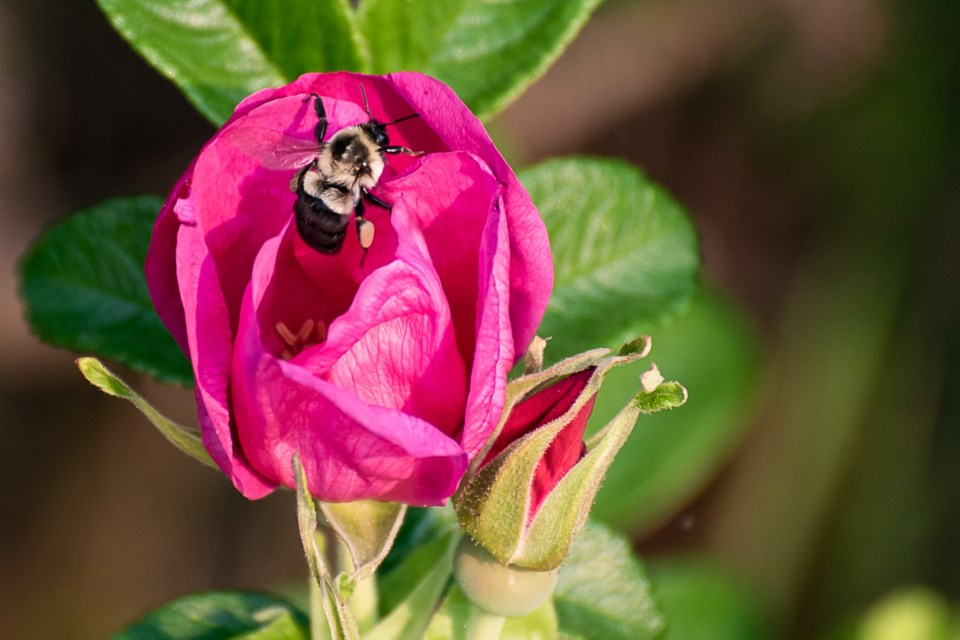New research from Trent University said mining could have less of an impact on pollinating insects than current land uses that might disturb the food sources and nesting habitats of pollinators.
The impact of mining is less provided there is enough forested green space nearby where the pollinators can thrive, said researchers.
The study, carried out in collaboration with the non-profit organization Sudbury Shared Harvest (SSH) and Trent University, found that current land uses may have a greater influence on pollinating insects than disturbance caused by mining, said a news release from the shared harvest group.
Current land uses could include such things as streets, parking lots, office buildings, retail malls, schoolyards and general urban sprawl.
“Simply put, it does not seem to matter if there is mining disturbance nearby, as long as there is enough forested area to supply the pollinator population with supplementary food resources and nesting habitat,” said the study’s author, student researcher Kaleigh Mooney of Trent University.
“That said, a new study with more sample sites would be beneficial to draw stronger conclusions about the relationship between pollinator groups and surrounding green space."
The release said volunteers and Sudbury Shared Harvest staff collected insect samples from local gardens, backyards and food forest sites over the summer months in recent years.
The study sought to answer two key questions: whether proximity to current or previous mining operations has an influence on which pollinators are present, and what influences do current land uses have on which pollinators are present?
The study gathered data from honey bees, bumble bees, wild bees, wasps, large flies and small flies (less than 0.5 centimetres) in the summer of 2022. The insects were collected in six sampling areas, some of which were close to mining sites, both operating and closed.
“Pollination through insects or other fauna is the primary reproductive method for most plant species and helps to promote plant biodiversity. This in turn helps to foster a healthy, robust ecosystem,” said the report.
“Given Sudbury’s long history of intensive industrial activity, it may be beneficial to understand the current pollinator community present and how it relates to the surrounding landscape. This may inform locations for future community gardens, pollinator conservation programs, and urban planning efforts,” the report continued.
Mooney's study stated, "It was thought that current land uses may have a greater influence on pollinating communities than their proximity to disturbance (mining areas).
Sudbury Shared Harvest's co-executive director, Carrie Regenstreif, said the research is not finished.
"This is part of a longer term study looking into possible effects of our mining history on the safety of growing food in Sudbury. The researchers from Trent are currently working on a report based on data they have been collecting for the past couple of summers, including samples of food grown in our community food forests and in people’s yards," said Regenstreif.
"They are considering collecting more this summer, but exactly what else they’ll do going forward hasn’t been decided yet."
Mooney’s report is part of a long-term study by Sudbury Shared Harvest in collaboration with researchers at Trent University and Sir Sanford Fleming College, looking at some of the effects of heavy metal contamination in soils, said the news release.
— Sudbury.com




